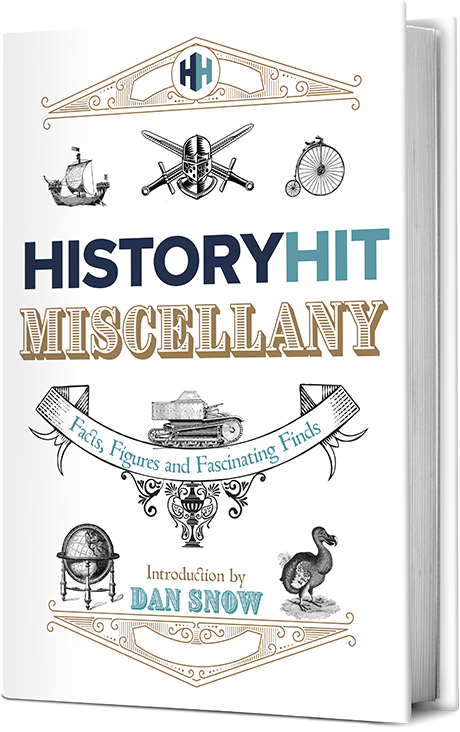
Since the first in the series released in 2007, the Assassin’s Creed franchise has propped itself between history, myth and science fiction. The series’ latest iteration, Assassin’s Creed Valhalla, explores the Viking past.
Virtual Landscapes
Previously, the stories of the franchise have portrayed a fictionalised version of the medieval Levantine Order of Assassins, a Victorian plot involving steampunk science, and a Niccolo Machiavelli who can do parkour. However the main draw of the series is the way it situates players in convincing historical settings.
These settings include ancient and mythological Greece, revolutionary Paris and sun-bleached Spanish Havana. These virtual landscapes always embrace a certain historical authenticity. There’s a reason for this. Ubisoft thoroughly researches the world design of each game. Topography, architecture, costumes: each receives plenty of attention ahead of development.

Assassins Creed Valhalla screenshot
Image Credit: Ubisoft
Viking Verisimilitude
Assassin’s Creed Valhalla, released in late 2020, took the series for the first time to early medieval Europe. Its action moves with its Viking protagonist from Scandinavia to Britain and Ireland, and with The Siege of Paris expansion, beaches upon the shores of West Francia. As you might expect, such ambitious scope requires lots of reading.
Yet as historical consultant Thierry Noël points out, the scarcity of historical documentation means that the Viking Age doesn’t lend itself so easily to this kind of work. Noël explained to History Hit how Assassin’s Creed Valhalla incorporates the Viking past in its compelling virtual world.

Assassins Creed Valhalla screenshot
Image Credit: Ubisoft
What does being a historical consultant on Assassin’s Creed Valhalla entail?
“Well, I am part of Ubisoft’s Research Unit, which is a permanent team of experts with different specialties in History, geography, or political and cultural issues, for instance. Our task is to provide all the inspirational material necessary to feed the creativity of our game developers.
“As you certainly know, Ubisoft’s concern for authenticity and for building believable worlds is notably a main pillar of our Assassin’s Creed series. As an historian myself, my mission on Valhalla was then to collect and transmit any historical information required by our teams to recreate the Viking Age, especially in Scandinavia and in England. This research included reading a lot, visiting museums, libraries or archaeological sites, or consulting Viking Age experts.
“Any information is interesting to build a world, from the main historical events to the smallest daily issues, from the material life to the social relations and cultural matters. Once collected and carefully checked, all this information is transmitted to our teams through different specific tools of sharing and interactions we have.
“Working in close collaboration with my colleagues from the Editorial Production, we also organised a long inspirational field trip in Norway, Denmark and England, for the creative teams. We visited iconic places, discovered fantastic landscapes and had some immersive experiences: for example, we rowed on a perfectly reconstructed Viking longship, we learnt and practiced the Viking way of fighting, or just baked a delicious typical Norse flatbread!”

Assassins Creed Valhalla screenshot
Image Credit: Ubisoft
What are the challenges of helping tell a story set in this period?
“Compared to previous periods where Assassins’ Creed games took place, for example Ancient Egypt or Ancient Greece, the fact is the Viking Age, especially in England, is rather poorly documented. It is indeed remarkable how such a decisive period for the Western world has actually left so few traces.
“Vikings are definitely among the most iconic figures of the medieval era but we actually know very little about them and their society. Many elements we believe to be true came from arguable sources or were later inventions. The main challenge was clearly to face the lack of reliable sources, dig deep into this period of history and to reconstruct it the best we could, with authentic elements or believable guidelines.
“This was challenging for sure, but enjoyable too: a unique adventure for us researchers and for the creative teams!”

Assassins Creed Valhalla screenshot
Image Credit: Ubisoft
What sources were available to help make the game as historically authentic as possible?
“Anglo-Saxon chronicles are interesting but provide scarce elements. Even the famous Nordic sagas are in fact stories composed centuries later in medieval Scandinavia, mostly Iceland, which was already Christianized and had surely changed in many aspects. However, when carefully treated these sagas remain an interesting source of information about what may have been the Viking age, especially in terms of values and culture.
“Archaeology has also been providing very important information, and new discoveries keep appearing each year! Some historical reenactors in Scandinavia and England also produce useful work on reconstruction and research, notably in terms of experimental archaeology. The historians, archaeologists, linguists or reenactors we consulted helped us to deal with all of this precious information.”

Assassins Creed Valhalla screenshot
Image Credit: Ubisoft
Was it a part of your brief to give players something of a history lesson?
“Yes, definitely! Assassin’s Creed is about adventure, fun, action and emotions. But it is also about discovering and learning about important historical periods.
“In the case of the Viking Age, an iconic but little-known period, this was an opportunity to show the Vikings from a different point of view. In addition to the image of Viking as brutes and plunderers, players can discover a more complete portrait of the Vikings and their era. This was a time of conflicts and strong challenges, but also of discovery and cultural exchanges.
“The game itself provides an immersive experience of the Viking life, but the learning opportunity will be extended by the Discovery Tour mode. This is a fully educational experience of the game, which will be released soon.”














